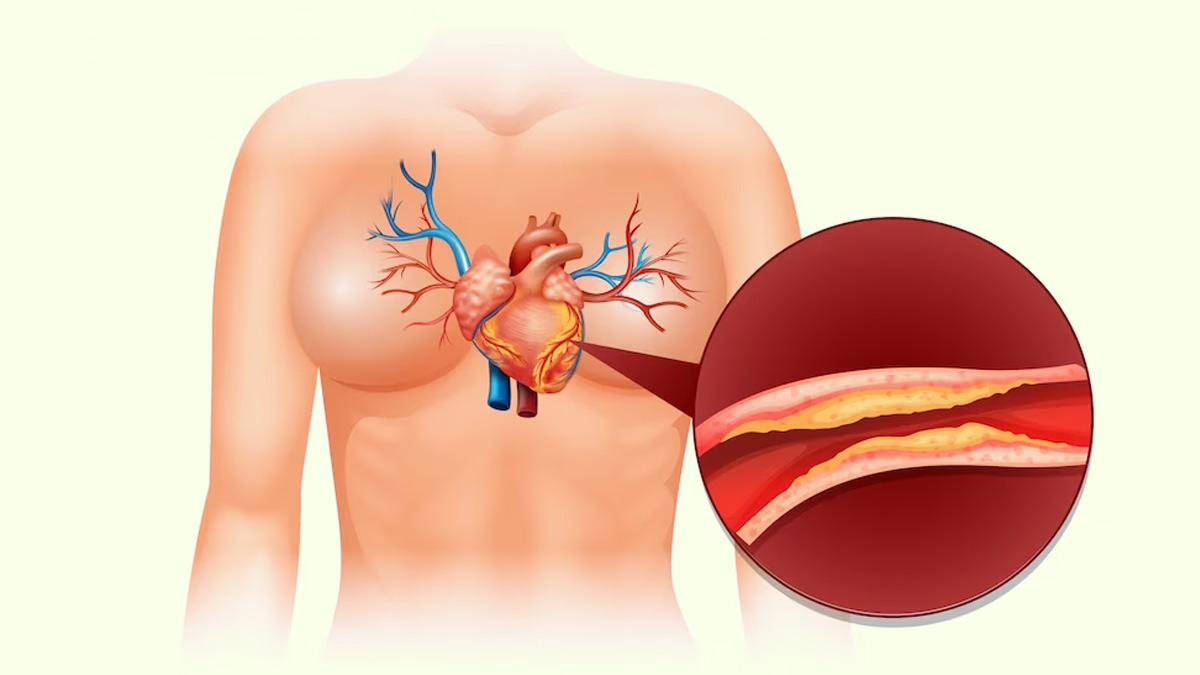
Do you know cholesterol is essential for various bodily functions? Having too much of the wrong type of cholesterol can lead to serious health issues.
It is important to keep an eye on your total cholesterol, LDL ("bad") cholesterol, HDL ("good") cholesterol, and triglycerides. High levels of LDL cholesterol and triglycerides, combined with low levels of HDL cholesterol, can indicate an imbalance that may harm your body.
Table of Content:-
"A sedentary lifestyle and a lack of physical activity can significantly increase cholesterol levels, but people can reduce their risk of developing high cholesterol by adopting a healthy diet, engaging in regular physical activity, and maintaining a healthy weight," said Dr Bhupesh R Shah, Senior Interventional Cardiologist, HCG Hospitals, Ahmedabad.

Chest Discomfort or Pain
One of the most apparent signs that cholesterol might be harming your body is chest discomfort or pain. This could indicate a condition known as angina, which occurs when arteries become narrowed or blocked due to a buildup of cholesterol plaque. If you experience chest pain, it's crucial to seek medical attention immediately.
Also read: The Primary Causes Of High Cholesterol That Can Be Prevented
Shortness of Breath
Difficulty breathing or shortness of breath, particularly during physical activity, can be a sign that cholesterol buildup is restricting blood flow to the heart. This reduced blood flow can lead to heart-related issues and should not be ignored.

Numbness or Weakness
Cholesterol buildup doesn't only affect the heart; it can also impact blood flow to other parts of the body. Numbness, weakness, or a tingling sensation in your arms, legs, or extremities could be a sign that cholesterol is harming your blood vessels.
Yellowish Deposits on Skin
According to Advances in Dermatology and Allergology, the visible sign of cholesterol-related harm is the appearance of yellowish deposits, known as xanthomas, on the skin. These deposits are often found around the eyes, elbows, knees, or other joints. They indicate that cholesterol is accumulating in the body and may be affecting blood vessels.
Digestive Issues
Cholesterol-related issues can even affect your digestive system. A condition called gallstones can form when there is too much cholesterol in the bile, a digestive fluid produced by the liver. If you experience sudden and intense abdominal pain, especially after consuming fatty foods, it could be a sign of gallstones.
Also read: Nutritionist-Recommended Recipes To Lower Cholesterol Levels
Being attentive to the signs that cholesterol is harming your body is essential for maintaining good health. Regular check-ups, cholesterol screenings, and awareness of your body's signals can help you identify potential issues early on. If you notice any of the signs mentioned above, don't hesitate to consult a medical professional. Remember that lifestyle changes such as a healthy diet, regular exercise, and medication (if necessary) can go a long way in managing cholesterol levels and reducing the risk of harm to your body. Your health is worth the effort.
Also watch this video
How we keep this article up to date:
We work with experts and keep a close eye on the latest in health and wellness. Whenever there is a new research or helpful information, we update our articles with accurate and useful advice.
Current Version